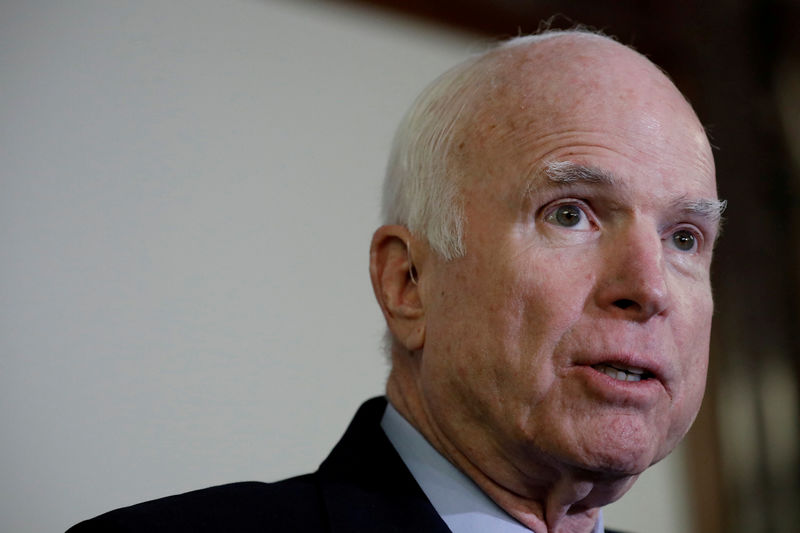By Balazs Koranyi and Francesco Canepa
FRANKFURT (Reuters) - The European Central Bank raised growth and inflation forecasts for the euro area on Thursday but stuck to its pledge to provide stimulus for as long as needed, predicting inflation would remain below target into 2020.
The ECB kept its key rates on hold and also held rigidly to its script on its intentions for next year - despite pressure from some policymakers to acknowledge explicitly the strength of the euro zone recovery and more closely follow the U.S. Federal Reserve's tightening trend.
The euro rose to a day high of $1.186 after the bank raised its growth forecasts from this year through to 2019. Inflation, however, was predicted at just 1.7 percent in 2020 - short of its official target of close to 2 percent - despite a modest upgrade of price expectations.
"All in all the revision of the macroeconomic projections is going in the right direction," ECB President Mario Draghi told a news conference, noting that subdued wage growth suggested an "ample" degree of stimulus was still required.
In a nuanced message, he nonetheless added that he was more confident than two months ago that the inflation target could be reached and said he saw no negative effect from the U.S. Fed's tightening, with its latest rate hike announced on Wednesday.
Six weeks after agreeing to halve asset buys from January, the ECB reiterated its commitment to continue bond purchases at least until the end of September, and to keep reinvesting cash from maturing debt until much later to support a rebound in growth and inflation.
Having faced five years of anemic inflation, the ECB has deployed its entire policy arsenal, cutting rates into negative territory, giving banks cheap loans and hoovering up bonds with an unprecedented 2.55 trillion euros ($3 trillion) of purchases.
Its work has paid off as the euro zone recovery is now well into its fifth year thanks to nine million new jobs, letting policymakers curb stimulus from next year and raising the prospect that the lavish bond buys it started in early 2015 could finally end.
But the economic run is stronger than most have expected.
Indeed, the euro zone purchasing managers' index rose to a seven-year high this month, data on Thursday showed, while Germany's Ifo institute unveiled surprisingly bullish forecast for the euro zone's biggest economy.
This rapid expansion is fuelling arguments among more conservative policymakers that the ECB is moving too slowly and should be more decisive in signaling the end quantitative easing to preserve its remaining firepower after the crisis tested its limits.
Shifting the ECB's message on stimulus may have been made easier by a benign market reaction to the Federal Reserve's third, well-telegraphed interest rate hike this year late on Wednesday. [MKTS/GLOB]
This was a sign that investors were confident enough in the state of the global economy not to fear a continued, albeit very gradual, increase in the cost of borrowing dollars - the currency that underpins much of world trade.
Policy hawks in Frankfurt want Draghi to keep preparing markets for an end to asset buys sometime next year, arguing for changes in the bank's message to set up a formal decision by mid-year on ending the bond purchase scheme.
But Draghi said there was no discussion either of a formal end date for the asset purchases or cutting the direct link between inflation and bond purchases, something advocated by several influential policymakers in recent months.
They argued that the ECB should instead connect its overall policy stance to inflation, de facto cutting the emphasis on quantitative easing (QE) and making it easier to end it.
Some policymakers argue that the ECB should increase the proportion of private sector purchases by keeping those volumes steady when sovereign purchases are cut from January.

Such a shift could also take some pressure off sovereign buys as the ECB is nearing its self-imposed purchase limits in several countries.